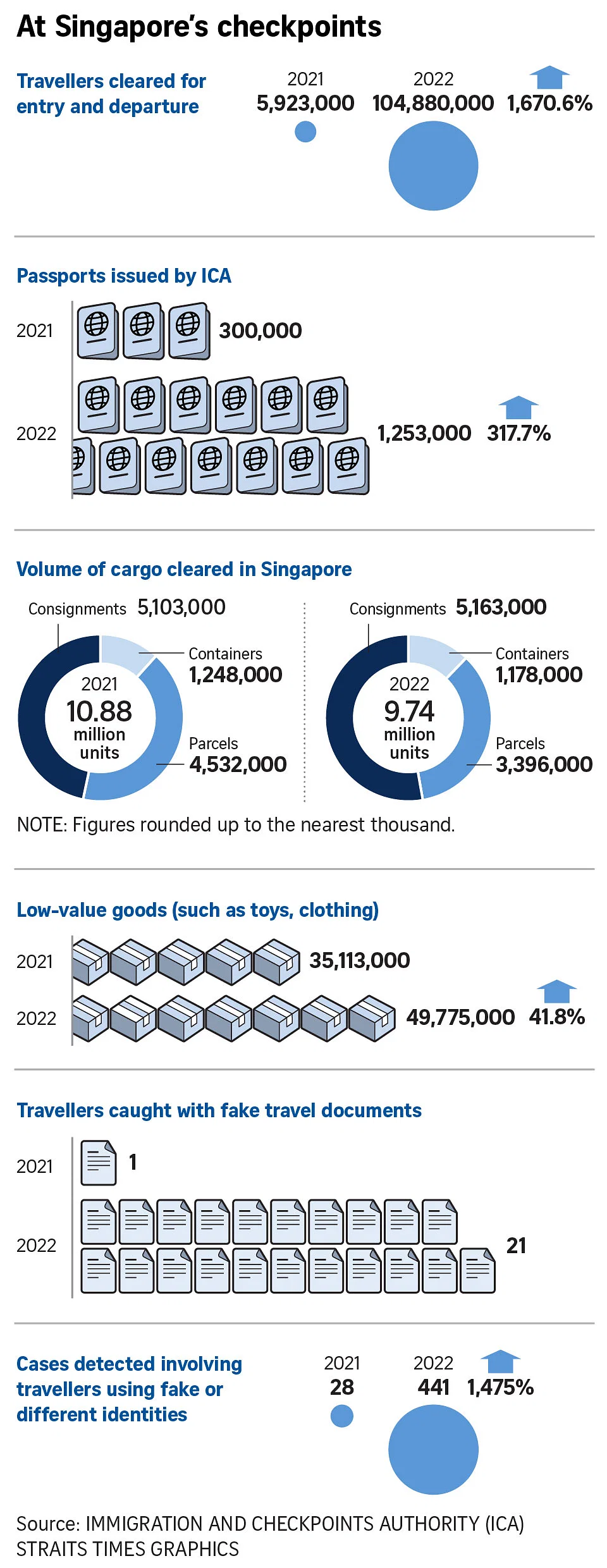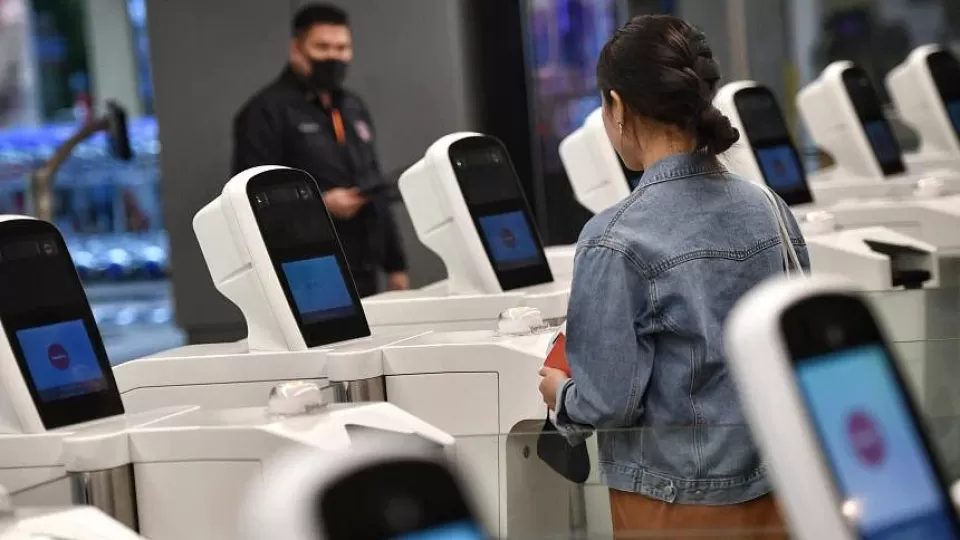February 17, 2023
SINGAPORE – There was a surge in travellers attempting to enter Singapore using an impersonated identity or identity they had not previously used amid the reopening of borders in 2022.
Revealing this on Friday, the Immigration and Checkpoints Authority (ICA) said that there was a nearly 15-fold increase in such cases at Singapore’s borders – from 28 cases in 2021 to 441 cases in 2022.
In response to queries from The Straits Times, an ICA spokesman said: “Travellers found to be using an impersonated identity or an identity different from their previous trips to Singapore in order to circumvent our checks will be denied entry and banned from returning to Singapore.”
ST has asked ICA for pre-pandemic figures as well.
The agency said that the travellers were detected by the biometric clearance systems, which use iris patterns and facial features as primary identifiers for immigration clearance.
The cases detected often involved immigration offenders who had previously overstayed or were deported, or those who had committed or attempted to commit various offences in Singapore.
The surge came amid a significant increase in traveller volume, the agency’s annual statistics report released on Friday showed.
In 2022, 104.9 million travellers were cleared for entry and departure, more than 17 times the 5.9 million travellers cleared the previous year.
Traveller volume at the land checkpoints also hit near pre-Covid-19 levels during the year-end school holidays last December. Close to 400,000 travellers passed through both Tuas and Woodlands checkpoints daily that month.
With the reopening of borders, and the promise of international travel, many Singaporeans also rushed to apply for passports.
This led to an unprecedented surge in passport applications, with ICA issuing more than 1.25 million passports in 2022 compared with 300,000 passports in 2021.
“Many citizens had put off renewing their expired passports during the two years of travel restrictions amid the Covid-19 pandemic,” the agency said.
To deal with the surge, ICA deployed nearly 300 officers from other work units to process passport applications on a 24/7 basis.
To protect Singapore from those who may pose a security risk to the country, ICA said that it has progressively deployed multi-modal biometric clearance systems at the checkpoints.
Since July 2020, all automated and manual immigration lanes and counters at the passenger halls of Singapore’s land, sea and air checkpoints have been equipped with iris and facial scanners.
The figures showed that in 2022, 21 people were detected with forged or tampered travel documents, up from one person in 2021.
There was also an increase in contraband smuggling attempts at the checkpoints with the reopening of borders.
In 2022, ICA detected 35,000 contraband cases, up from 27,000 in 2021.
The largest seizure of contraband in 2022 occurred on June 24, when ICA officers seized 37,728 cartons of duty-unpaid cigarettes which were hidden within large rolls of aluminium foil in a container at Pasir Panjang Scanning Station.
Meanwhile, the volume of cargo – including consignments, containers and parcels – coming into Singapore saw a slight dip from 10.9 million in 2021 to 9.7 million in 2022.
However, the volume of low-value goods cleared rose by 41.8 per cent, from 35.1 million in 2021 to 49.8 million in 2022.
ICA said the volume of these items, which included clothing and toys purchased online, increased due to high Internet usage and the ease of online shopping.
The agency on Friday also provided figures on immigration offenders and those who harbour and employ them.

In 2022, there were 414 illegal immigrants and overstayers arrested, an increase from 355 in 2021.
However, there was a small dip in the number of people who harboured or employed these immigration offenders, from 236 in 2021 to 226 in 2022.
ICA said nine people were arrested for offences related to marriages of convenience in 2022, up from one arrest in 2021. The arrests in 2022 included four couples and one person who had arranged a marriage of convenience.
“The foreign spouses had engaged in a marriage of convenience in order to prolong their stay in Singapore, with the local spouses receiving gratification in the form of money for assisting in the application for immigration facilities.
“We will continue to take tough enforcement action against them and also the middlemen who facilitate (such marriages),” the agency said.


